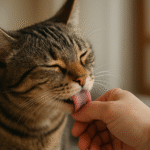Without a functioning immune system, our pets would easily fall prey to every hostile organism that came around. Immunity is designed to protect against such infectious invaders and eliminate any foreign matter or cells that somehow gain entrance into the body.
Preventing the growth of cancer cells and tumors is also in its job description. Although the immune system serves a rough and rugged function, a delicate balance does exist as far as its activity is concerned.
Stress, poor nutrition, and hormone fluctuations are only some of the many factors which can deleteriously alter this activity, leading to a weakened defense system. As if this weren’t enough, certain viruses, such as the canine parvovirus and the feline leukemia virus, have the ability to suppress the immune system.
Such an overwhelming upset of the body’s natural defense mechanisms can only lead to one outcome, and it isn’t good. This balance can be thrown the other way as well. There are certain disease conditions that can be caused by an overactive, overworking immune system. Allergies are a good example of this.
Allergic reactions can even turn deadly if the response is exaggerated enough. At other times the immune system, in carrying out its duties, will destroy or damage normal healthy tissue in the process.
These autoimmune diseases usually result from the body’s inability to turn off the immune response, with disastrous consequences.





